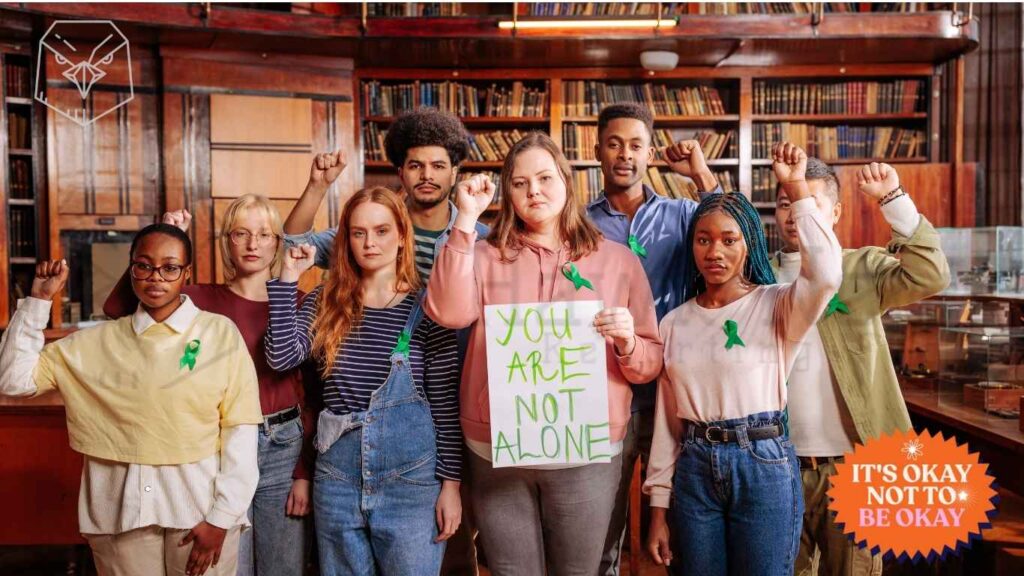
In today’s always-on culture, the word “self-care” often gets tossed around like a trendy hashtag. But beyond bubble baths and weekend getaways, there’s a deeper movement happening—one where mental health is finally being given the attention it deserves.
🧠From teens to professionals, more people are waking up to the fact that prioritizing mental well-being isn’t selfish—it’s survival. And while the conversation is growing, the challenge remains: how do we actually make space for self-care in a world that never slows down?
Let’s get real about what mental health looks like in everyday life—and explore simple, meaningful habits that can actually make a difference.
🌿 Why Mental Health Needs to Be a Daily Priority
Mental health isn’t something we can compartmentalize or “fix” in a weekend. Like physical fitness, it requires consistent care, intentional time, and emotional honesty.
According to the World Health Organization, one in every eight people globally is living with a mental disorder. Anxiety and depression top the list.
What’s driving this rise?
- 24/7 digital connection
- Burnout culture
- Financial and societal pressures
- Lack of work-life boundaries
- Emotional isolation despite constant social scrolling
These factors combined are leading to a silent epidemic of emotional exhaustion. Which is why self-care is no longer optional—it’s essential.
🧘♀️ The Rise of Mindfulness and Meditation
Mindfulness may sound like a buzzword, but it’s backed by science. It’s the practice of being present without judgment, often rooted in meditation or breathwork.
Here’s how mindfulness helps:
- Reduces cortisol (stress hormone)
- Improves focus and memory
- Builds emotional regulation
- Helps you respond instead of react
Practical Tip: Start with 5 minutes a day. Use apps like Insight Timer, Calm, or Headspace. Even a few deep breaths before a meeting can reset your nervous system.
🌀 Remember: Mindfulness isn’t about clearing your mind—it’s about noticing your thoughts without getting stuck in them.
🛁 Self-Care Isn’t a Luxury—It’s Maintenance
Let’s bust a myth: self-care isn’t about expensive treats. It’s about doing the small, often boring things that keep you mentally afloat.
Real self-care can look like:
- Saying no without guilt
- Turning your phone off after 9 PM
- Scheduling a walk instead of a Zoom meeting
- Cooking a nourishing meal
- Keeping a journal of your thoughts
📝 One powerful trick:
Create a “mental maintenance” menu—a list of 10 small things that help you recharge (from napping to listening to jazz). Keep it on your fridge or phone.
🤝 The Power of Connection
Isolation is one of the biggest contributors to poor mental health. Yet many of us avoid vulnerability in the name of “staying strong.”
But here’s the truth: talking saves lives.
Whether it’s with a friend, therapist, or community group, regularly connecting with others validates your emotions and breaks the cycle of inner turmoil.
If you’re not ready to open up face-to-face:
- Try anonymous helplines
- Join online mental health forums
- Start with a journal to process thoughts
🫂 Your voice matters, and you’re not a burden.
🕯️ Building a Self-Care Routine That Actually Sticks
Self-care fails when we try to overhaul our lives overnight. The key is to start small and stay consistent.
Here’s a simple weekly rhythm to follow:
Monday – 10-minute morning stretch
Tuesday – Digital detox evening (no screens after dinner)
Wednesday – Walk & talk with a friend
Thursday – Gratitude journal: 3 things you’re thankful for
Friday – Light a candle, play music, and slow down
Weekend – Optional rest, clean-up, or creative time
📌 Pro Tip: Attach a habit to an existing one. Example: After brushing your teeth, meditate for 2 minutes. That’s how routines become rituals.
🔄 Rethinking Productivity and Worth
We often tie our value to what we achieve. But rest isn’t the opposite of productivity—it’s the foundation for it. When we don’t rest, we burn out. When we burn out, everything suffers: creativity, relationships, health, work.
Real productivity includes:
- Taking mental breaks
- Eating when hungry (not “when I finish this”)
- Pausing when overwhelmed
- Protecting your energy, not just your time
💡 Quote to remember: “You are not a machine. You are a person.”
📚 Resources for Mental Wellness
If you’re serious about making your mental health a priority, consider these tools:
- Books: “The Gifts of Imperfection” by Brené Brown, “Atomic Habits” by James Clear
- Apps: Moodpath, Reflectly, Breathwrk
- Therapy Platforms: BetterHelp, Talkspace, MindPeers (India-based)
- Podcasts: “On Purpose” with Jay Shetty, “The Happiness Lab,” “Therapy Chat”
These resources offer accessible, non-judgmental support—even when you’re not sure where to start.
🌱 Final Word: Healing is Daily, Not Dramatic
In a world that glorifies hustle, taking time for yourself might feel radical. But it’s exactly what this moment calls for. Mental health isn’t a destination; it’s a practice. And self-care isn’t about doing more—it’s about doing what matters.
So the next time you feel overwhelmed, remember:
Pause. Breathe. Reconnect. You’re allowed to take care of you.